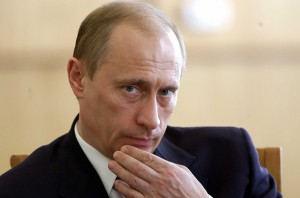 The sounds of crickets usually accompany any explanation of Russian economics. The sovereign’s unraveling began long ago during the cold transition to capitalist industries. The journey was far from smooth. Although few western sovereigns can boast total equality in wealth and upward mobility, in this respect Russia falls to last in line. Wealth settled “”upward” among the already rich and politically elite rather than trickle down to create a supportive middle class. Changing a nation’s mindset to embrace a price system for government owned and operated businesses is very ambitious. A lesson China needs to study.
The sounds of crickets usually accompany any explanation of Russian economics. The sovereign’s unraveling began long ago during the cold transition to capitalist industries. The journey was far from smooth. Although few western sovereigns can boast total equality in wealth and upward mobility, in this respect Russia falls to last in line. Wealth settled “”upward” among the already rich and politically elite rather than trickle down to create a supportive middle class. Changing a nation’s mindset to embrace a price system for government owned and operated businesses is very ambitious. A lesson China needs to study.
Leaders like Vladimir Putin have busied themselves attempting to create a hybrid economy based on an oligarchy of rich cronyisms. Criticisms of western cultures have only highlighted Putin’s inability to grow a once rich economy. Its current economics is being influenced by political leadership stuck in the age of Gorbeshev and Primakov.
The GDP or Gross Domestic Product of Russia has ticked down to 1.2%. This benchmarks a steady decline since 2011. It is in stark contrast to her rapid ascent following a recovery after the Great Financial Meltdown of 2008 and 2009.
Fall off in the demand of oil exports is the biggest headwind Putin’s Russia faces. Global warming agendas are moving rapidly towards lower per capita usage of fossil fuels. With the advent of increased demand for shale oil, the price of Russian oil has become a bungee cord.
Currently facing the threat of recession, one of its largest customers Syria is being impacted by domestic wars. This leaves Russia with a troubled consumer that she cannot afford to lose. Putin’s sovereign’s major exports are oil and the related machinery necessary to drill, refine and produce. Their largest trading partner, the European Union is also struggling under the yoke of failing economies and diminution in the value of their sovereign funds, with the exception of Germany.
In addition, the recent generous gains in the S&P markets have neglected Russia. Russian market value has weakened indicating another loss in sovereign liquidity and investor confidence. Even though Russia’s wealth is dependent on a finicky oil market, she is still a major player on the global stage. However, the influences of the political process can shape market value.
Russia’s social policies are running decidedly against worldly opinion, as reflected in the Russian Winter games. The inability to resolve security issues for LGBT athletes during the Sochi Olympics is problematic. The face of social politics a country chooses to present to the world will influence pesky market predilections. Something the American Congress failed to understand.
While immolating his rival Russian President Vladimir Putin often delivers harsh criticisms of the United States. This may be an indication of wanting to covet her successes.









